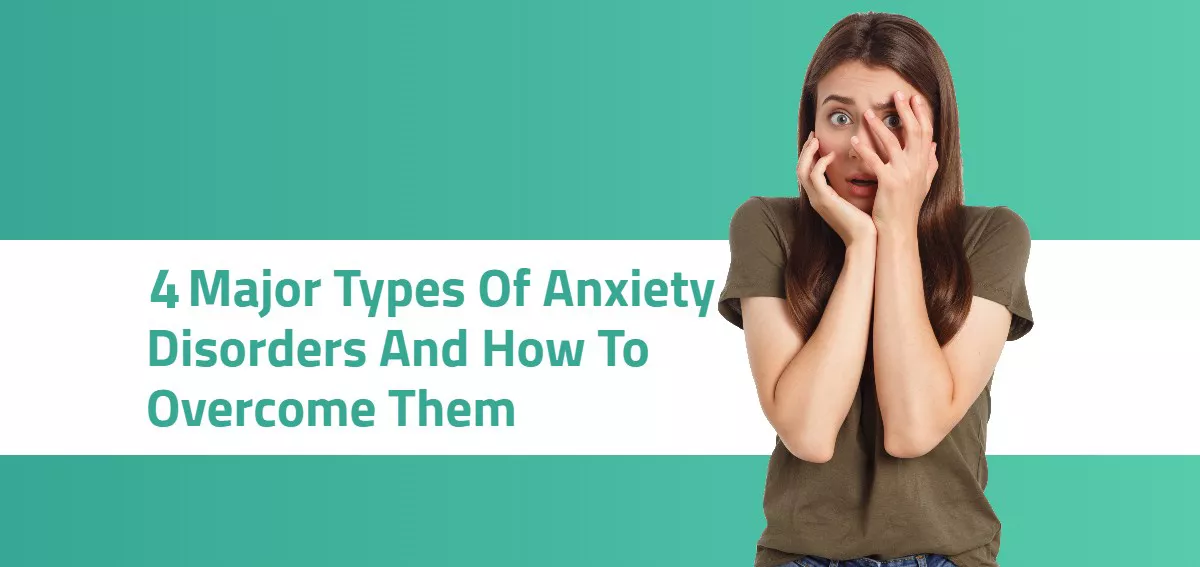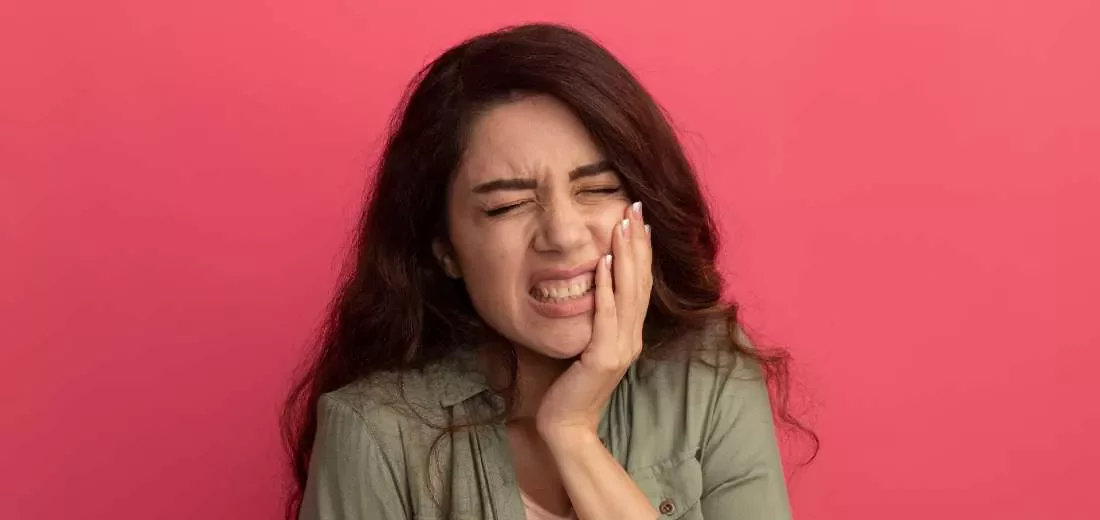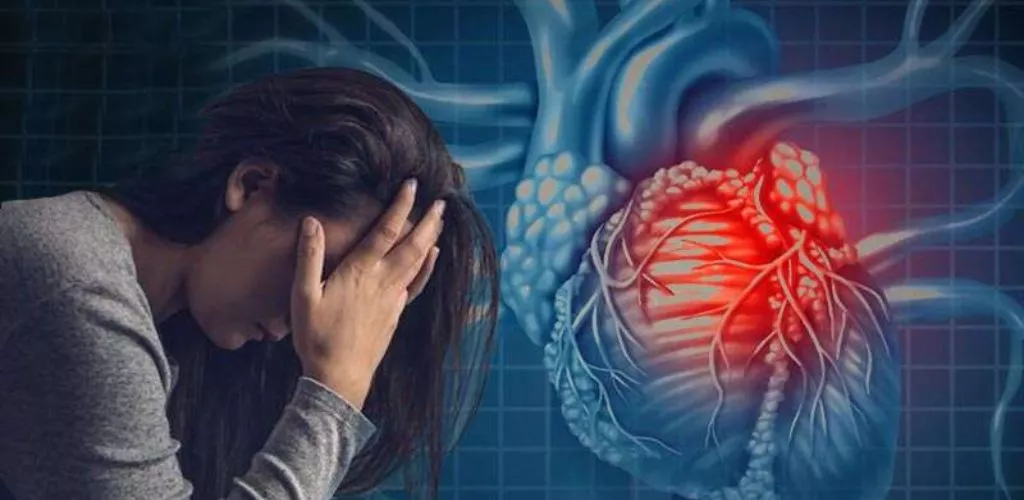Anxiety disorders fall under the category of mental health issues. It is challenging to get through the day when you are anxious. Sweating and fast heartbeat are symptoms of anxiety, along with feelings of panic, unease, and fear. Medication and cognitive behavioral therapy are the treatments mostly provided by doctors. Our psychologist and/or psychiatrist in hebbal,Bangalore, India can help identify the symptoms and the reason for your disorder. If you’re seeking professional care and advanced treatment options, visiting a Psychiatry Hospital in Hebbal Bangalore can be a helpful step toward recovery.
What is anxiety?
Your body's natural reaction to stress is anxiety. It is a feeling of apprehension or fear about what lies ahead. For instance, some people may experience anxiety and fear before attending a job interview or when giving a speech on the first day of class. The physical symptoms of anxiety are shortness of breath, chest pain, heart palpitations, nausea, and stomach discomfort. However, if your anxiety symptoms are severe, persistent for at least six months, and affecting your life, you may be suffering from an anxiety disorder.
What is anxiety disorder?
An anxiety disorder is a specific kind of mental illness. If you suffer from an anxiety disorder, you might experience dread and fear in response to particular things and circumstances. Additionally, anxiety can cause physical symptoms like sweating and a racing heart.
It is common to have some kind of anxiety. If you have to solve a problem at work, attend an interview, take a test or make a significant decision, you might experience anxiety or nervousness. Even good things can come from anxiety. For instance, anxiety helps us focus our attention and makes us aware of potentially dangerous situations, keeping us safe.
However, an anxiety disorder goes beyond fear and regular nervousness you might experience occasionally. You probably have an anxiety disorder when:
- Your ability to perform daily tasks is hampered by anxiety.
- When something triggers your emotion, you tend to overreact.
- You have no control over how you react to situations.
It can be difficult to get through the day if you have an anxiety disorder. Thankfully, there are several effective methods to overcome anxiety disorders. Consulting experienced Psychiatrists in Hebbal Bangalore can help you receive personalized care and the right therapeutic approach for your specific needs.
What are the four types of anxiety disorders?
- Generalised anxiety disorder: Generalised Anxiety Disorder (GAD) is a type of anxiety disorder that is characterised by persistent anxiety, exaggerated worry, and tension even in the absence of a trigger.
- Social Anxiety (or Social Anxiety Disorder): An anxiety disorder called social phobia, also known as social anxiety disorder, is characterized by excessive self-consciousness and overwhelming anxiety in routine social situations. Fear of speaking in formal or informal settings or of eating or drinking in front of others are examples of situations where social phobia can be observed.
- Obsessive–Compulsive Disorder (OCD): Recurrent, unwanted thoughts (obsessions) and/or repetitive behaviors are hallmarks of obsessive-compulsive disorder (OCD), an anxiety disorder (compulsions). To stop or eliminate obsessive thoughts, people frequently perform repetitive actions like hand washing, counting, checking, or cleaning.
- Post-traumatic stress disorder (PTSD): Anxiety disorders such as PTSD can appear after exposure to a terrifying experience like physical harm or feeling threatened. Violent personal attacks, catastrophes caused by nature or people, accidents, and military conflict are examples of traumatic events that can set off PTSD.
Symptoms of Anxiety Disorder:
Anxiety disorders are characterized by an overabundance of fear or worry. Depending on the type of anxiety disorder you have, you may experience certain symptoms.
The following are typical signs and symptoms:
- Panic, fear, and unease
- Feelings of doom and danger
- Sleep issues
- Unable to stay calm and silent
- Avoiding feared objects or places
- Numb, tingly, chilly or sweaty hands or feet
- Breathing more quickly than usual (hyperventilation)
- Shortness of breath
- Heart palpitations
- Repeatedly thinking about a problem without being able to stop
- Being unable to concentrate
How do you overcome anxiety?
You may be able to deal with anxiety in a variety of ways to feel more emotionally healthy. You could try implementing the following methods:
1. Acceptance
Learning to accept the fact that not all intrusive thoughts indicate a valid reason to worry is one way to deal with anxiety. In an acceptance-based approach, you simply observe the thought you are having without feeling compelled to address, correct, refute or even believe it. You are not concentrating on it, just letting it come and go.
2. Lifestyle Change:
The types of foods and beverages you consume can affect your level of anxiety. According to one study, participants who consumed more added sugar and saturated fat had higher levels of anxiety than those who consumed less of both. Eating a diet high in fibre, fruits, vegetables, and healthy fats and low in processed foods is linked to better mood and easier management of psychiatric conditions like anxiety and depression.
Additionally, caffeine can make you feel more anxious. Because there is caffeine in many teas, beverages, and foods (including chocolate), it's important to read nutrition labels and keep track of how much you're consuming.
3. Physical Activity
Find a way to move that feels good for you; it does not have to be an exhausting, protracted workout. Even a short 10-minute stroll can lift your spirits.
Exercise can help you focus better, sleep better, and feel less stressed. For patients with anxiety and depression, many doctors recommend physical activity in addition to counseling and/or medication.
4. Mindfulness
You can also try practising mindfulness, meditation, deep breathing and progressive muscle relaxation as additional coping mechanisms to help reduce anxiety. According to a study, people who used the mindfulness meditation technique significantly reduced their levels of stress and anxiety.
5. Be In Touch With Nature
Another method to reduce anxiety is to get in touch with nature. Taking a walk in the woods or even just listening to nature sounds can help you feel more connected to nature and improve your mood.
6. Treatment
It is important to seek help if anxiety is upsetting you or interfering with your daily activities. Typically, psychotherapy, drugs or a combination of the two are used as anxiety treatments. Discussing your symptoms with our doctor at Aster CMI, Bangalore will help you determine the best course of treatment for you.
FAQs:
1. What do I need to tell my doctor?
You need to start off by discussing all your symptoms with your doctor and describing how they are affecting your daily life.
2. What is the root of anxiety?
There are several factors that affect your mind, like environmental factors; genetic factors, job or personal relationships, traumatic past experiences, and medical conditions
3. What part of the brain causes anxiety?
The amygdala is involved in forming and retrieving emotional and fear memories.
4. What can you do to stop anxiety?
There are several things a person could try, like behavioral therapy, deep breathing, and exercise.
5. Is anxiety a mental illness?
Nearly 30% of adults experience an anxiety disorder at some point in their lives, making it the most prevalent of all mental illnesses.







